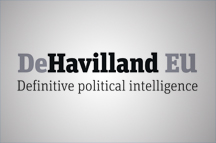In a reversal of the usual order, the European Union has already started to revise its own climate and energy framework, even though a new international climate agreement has not yet been signed.
In search of a more efficient, but still balanced Emissions Trading System
 This summer, the Commission tabled a proposal for the implementation of the post-2020 'Phase IV' of the ETS, as a follow up to the EU Member States' commitment to achieve a 40% greenhouse gas emissions reduction as compared to 1990 levels. The proposal confirms the accelerated annual reduction of the total number of carbon allowances from 1.74% to 2.2% from 2021 onwards, while sticking to the current 57% share of carbon allowances to be auctioned. On the issue of carbon leakage, the proposal reduces the number of sectors at highest risk of relocating their production outside the EU from 177 to around 50, for which around EUR 160 billion worth of allowances will be freely allocated.
This summer, the Commission tabled a proposal for the implementation of the post-2020 'Phase IV' of the ETS, as a follow up to the EU Member States' commitment to achieve a 40% greenhouse gas emissions reduction as compared to 1990 levels. The proposal confirms the accelerated annual reduction of the total number of carbon allowances from 1.74% to 2.2% from 2021 onwards, while sticking to the current 57% share of carbon allowances to be auctioned. On the issue of carbon leakage, the proposal reduces the number of sectors at highest risk of relocating their production outside the EU from 177 to around 50, for which around EUR 160 billion worth of allowances will be freely allocated.
The proposal received mixed feelings as energy intensive industries worry that the reduced carbon leakage provisions will threaten their competitiveness. Climate activists consider the proposal lacks teeth on the issue of low-price carbon allowances, as the Commission decided to move unallocated allowances from the current Phase III to the new Phase IV, whereas simply cancelling them would have been likely to drive carbon prices up.
As a significant number of emissions-intensive plants are planned to be phased out in the 2020-2030 decade, the extent to which the proposal will be tweaked by the European Parliament and the Council in the coming months will considerably impact the industry's investment decisions towards polluting or cleaner technologies.
The Market Stability Reserve: an early cure?
Another major piece of legislation aimed at fixing the carbon market is the proposal for a Decision on the MSR, which aims to automatically withdraw from the carbon market a percentage of carbon allowances and incorporate them in a "stability reserve" should the number of allowances exceed a certain threshold. The European Parliament put in a great deal of work to convince the Council and the Commission to start the mechanism as soon as 2019, before Phase IV of the ETS enters into operation.
Although no one has seen the mechanism operate so far, the proposal has also attracted its usual amount of criticism. On the green side, commentators stress that the mechanism is too weak as it will not withdraw enough allowances from the carbon market while the industry side points out concerns over the predictability of carbon prices, which is a key concern as far as investment decisions are concerned.
A new international climate agreement as a prerequisite to further EU climate measures
The outcome of the COP 21 conference in Paris is expected to have a major impact on the course of these proposals. The weaker the climate agreement is, the weaker the ETS reform will be as the EU will be pressured to safeguard competitiveness against climate mitigation.
Author
Alexis Thuau
EU Policy Analyst
DeHavilland EU
@environemenz
@dehavillandeu
DeHavilland EU has published a white paper on EU Energy policy. Download a free copy of the white paper online here.












